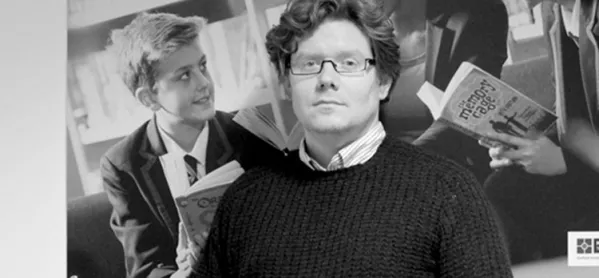What would teachers be prepared to trade for a lower workload? That is, even if it is rarely asked in that way, the central question of English education policy right now. In the 30 years since the Education Reform Act laid the foundations for the current school system-autonomous schools, published assessment results, regular inspection-the workload of teachers has undoubtedly risen. At the same time, so have standards, and many people might agree that the additional work has paid off.
But now we have a problem: teachers are leaving the profession in greater numbers - and fewer people with the appropriate qualifications, especially in some of our most important subjects such as maths and physics, are applying to join the profession. The most commonly identified cause of the impending teacher shortage is “workload”.
Union leaders will say the workload is a direct result of that post-1988 system: scrap externally-marked assessments and Ofsted and all will be well. The problem with that approach is that there would be no guarantee that standards would not slip back to the era of low outcomes - especially for children from the most disadvantaged backgrounds - that precipitated the direct involvement of national government in running schools in the first place.
My new report, which Policy Exchange has published today, argues for a different solution. Instead of rolling back the clock on the methods of accountability that have helped improve our schools, I argue that teachers need more support, resources and training to help them teach the rigorous and demanding curriculum England guarantees its children.
Guidance for teachers
Completing the Revolution: Delivering on the promise of the 2014 National Curriculum argues that NC2014, as we call it, is an excellent framework for learning, offering powerful knowledge to all children. But implementation has been left to teachers with little guidance or training in how best to deliver it, and especially no “oven-ready” quality-assured curriculum materials - textbooks, worksheets, assessments and so on - that they can use.
And this is where the question I opened with kicks in. I know, from my decade as a teacher, that many of my colleagues will instinctively dislike anything that takes from them the process of creating resources for their classes. Many will worry about “scripted lessons” and “automation” of teaching. But that is not my intention: no textbook will ever replace the significance of the relationship between teacher and pupil. It is precisely because of that fact that teachers should be making use of more externally produced and quality-assured teaching materials. Such things can be made effectively and efficiently, guaranteeing a coherent curriculum experience for young people, freeing teachers to focus on “the final foot”: the space between them and their students in the classroom, where their expertise is deployed in ensuring their pupils understand and retain the learning.
But I know teachers will be concerned by a loss of professional autonomy. To that I say “it need not be so”. The highly-respected teachers of Finland and Singapore are no less professional because of their regular utilisation of externally-created textbooks. To enhance the trust of teachers in England in what we are calling “coherent curriculum programmes”, my report suggests that government should not just commission a single set of resources for each subject, but should encourage a diversity of programmes, produced by respected institutions such as museums, learned societies and multi-academy trusts. Where schools are succeeding, teachers should continue to have the right to produce their own resources, but they should also have the choice not to, if they would rather deploy that time and effort elsewhere. That means increasing the supply of coherent curriculum programmes for them to choose from.
The road to lower workload - if it is not to come at the expense of higher standards for young people - must pass through this issue. If teachers in our schools move to teaching many more of their lessons using external resources - and we train the next generation of teachers likewise - we can begin rebuilding teaching as an attractive career choice, ensuring it is both a sustainable and professional job. That is a trade surely worth considering.
John David Blake is head of education at Policy Exchange, before which he was a state-school history teacher for 10 years
Want to keep up with the latest education news and opinion? Follow Tes on Twitter and like Tes on Facebook





